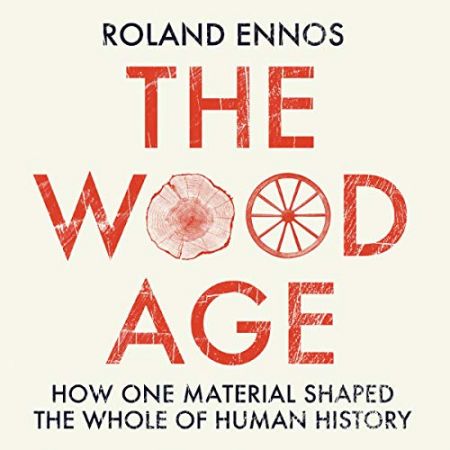The Wood Age: How One Material Shaped the Whole of Human History

|
Roland Ennos: The Wood Age: How One Material Shaped the Whole of Human History
The contrarian’s history.
It’s hard to think of a better illustration of how importance narrative is in recounting history — not just in engaging the imagination, and providing a framework from which, and through which to regard events, but in shaping and defining the events of history themselves. Our narrative engulfs us in ways we cannot see: its parameters decide what are the interesting and valid questions — the “right” questions — to ask.
By and large, our histories are those of men: kings, some queens, villains, heroes, heroines, civilisations, movements: of conquest and expiration. In any case, they are anthropocentric. They have a particular, heroic cadence of human lives, human lifespans, and human conflicts.
We are in thrall to the cult of personality, however absurd it might really be to think that one, or a hundred, or a thousand or even ten thousand individuals have meaningfully shaped our history.[1]
On the other, hand wood really might have. There is not a human life in history it has not profoundly affected. Roland Ennos’s excellent book asks whether we are not perhaps missing the wood for the trees.
The observation has been made[2] about sheep, or wheat, that they domesticated homo sapiens and not vice versa: these are amusing contrarian ideas with an element of truth (but they are better examples of the dynamic nature of complex systems where everything co-domesticates, or conditions, everything else). But however fair it is of wheat, it is far fairer of wood: you can only eat wheat, and its domestication began only a few short millennia ago.
Wood has been — ahh — part of the furniture quite a bit longer than that: since, well, since we came down from the trees, we have lived in it, sheltered under it, made tools and weapons out of it, burned it, cooked with it, and travelled in it. It is strong, flexible, combustible, shapable, carvable, and it doesn’t melt. It may have even triggered the evolution of consciousness: apes, manoeuvering through the treetops, needed a concept of “self”, because their bodies changed the world around them by bending the branches they stood upon. That is a profound thought. Those hailing the incipient triumph of the machines might consider how that differs from conditions for evolution of a neural network. What is the “bending branch” that will prompt a learning machine into self-reflection?
Wood’s ubiquity, its adaptability for almost any task and its resilience — not just as a material, but as compared to any other material, up to the present day — makes for fascinating reading. Ennos repeatedly confronts and rebuts conventional wisdom about wood, its future, its cultivation, its environmental impact and its sociological importance with deep observations, often on topics that seem well-removed from wood. For example, how an abundance of wood has been not always been an accelerant of civilisation but, especially in the period between the Roman times and the Renaissance when there little development, a retardant: If you have plenty of a material that meets all your prevailing needs, you are not forced to improvise, to fix and make do, or to use what you have in creative and unconventional ways to make things better — from which impulse comes innovation.
Highly recommended.
See also
References
- ↑ Go on, say, “what about Hitler”. You know you want to.
- ↑ By Yuval Harari for certain, and it’s the sort of thing Richard Dawkins would say, when not trolling Christians, too.